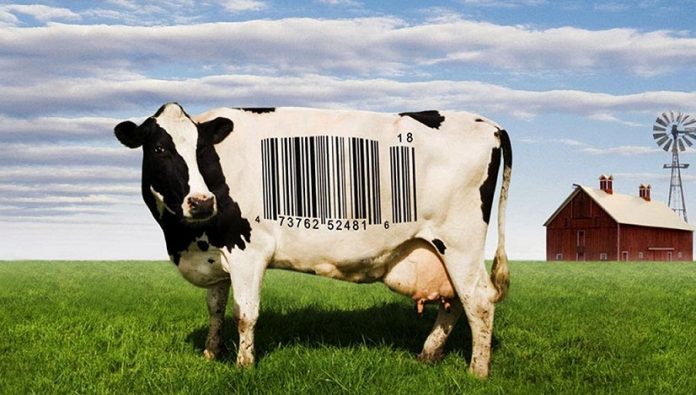Fast food only takes a front seat in our cars and lives at the last minute. Whether grabbing a quick snack before practice, eating lunch on-the-go, or picking up a family sized meal for dinner, fast food rarely texted precedent as our first food option in life. Because of this, discussion of the health ramifications and negative trends in the food industry are limited because, truthfully, everyone eats fast food in an emergency. However, documentaries like Food Inc. and Super Size Me changed the public’s opinions on fast food and catalyzed measurable changes in our express delivery meals.
Super Size Me shocked the world in 2004, as director and star Morgan Spurlock spent a thirty-day period eating nothing but McDonald’s food. The film depicts his physical and psychological deterioration as Spurlock must eat at the franchise three times a day. Forced to answer yes to every request to Super Size his order, Spurlock upgraded his order nine times in his thirty-day odyssey, five times within our home state of Texas. Because of this experience, he gained 24 pounds, increased his BMI by 13% and experienced mood swings, sexual dysfunction, and fat accumulation in his liver. It took Spurlock fourteen months to lose the weight gained using a diet supervised by his ex-wife chef who specializes in gourmet vegan dishes.
Morgan Spurlock released this film during a time of intense discord, saying in a 2004 Guardian interview “A spokesman for McDonald’s comes on TV and says listen, you can’t link our food to these girls being obese. Our food is healthy, it’s nutritious. So I said, well, if it’s that good for me, shouldn’t I be able to eat it for 30 days straight with no side-effects? To live the all-American diet of overeating and under-exercising, and be fine?”
Super Size Me put documentary films on the forefront of conversation with its use of comedy and humor to convey such a serious issue. Earning a place as one of the top-grossing documentaries of all time and receiving a nomination for the Documentary Feature Oscar, the film received plentiful recognition from critics. But how did this indie feature change fast food? Only six weeks before Super Size Me‘s release, McDonald’s discontinued its Super Size option and began a huge advertising campaign pushing healthier options like salads. Although the company denies any relation to the documentary, NPR pieces like this one show a huge change in the ways the food industry markets to families.
Despite the work that Super Size Me did to bring the over-saturation and malicious nature of fast food to the forefront of attention, the 2008 documentary Food Inc. dramatically revealed the malicious subculture of false advertising permeating into each and every food we consume. It revealed that although supermarkets average around 47,000 meat products, 80% of the manufacturing comes from only four core companies. Companies like the giant Monsanto hold monopolies unheard of since the Rockefeller era, “over 90% of soybeans in the U.S. contain Monsanto’s patented gene.”Although GMOs and chemicals continue to be a very large issue, organizations like the US Department of Agriculture have largely lost their powers to shut down plants from repetitive failures of salmonella and E. coli tests, weakened by the widespread influence of the meat and poultry associations. Even within these associations, processing industries wield authority as the head of the FDA during the Bush administration, Lester M. Crawford Jr., was also the former executive VP of the National Food Processors Association.
Unlike previous documentaries talking about food issues, Food Inc. massively impacted public perception of organic or healthy products. A survey of over 20,000 people conducted by the University of Southern California saw a significant alteration in shopping and lifestyle habits after watching the documentary. Viewers were significantly more likely to “encourage their friends, family, & colleagues to learn more about food safety, shop at their local farmers market, eat healthy food and consistently buy organic or sustainable food.” Additional findings saw audience much more likely to advocate for important social issues like improved treatment of animals in the food industry, improving school meals, and passing more food safety legislation.
https://www.youtube.com/watch?v=5eKYyD14d_0%20%20%20%20%20%20
Despite these advances in awareness and education on the food industry, the silver screen still maintains 2nd place in promoting nutritional health. The Hood Center for Children and Families at Dartmouth Medical School published a study highlighting “the frighteningly large majority of energy-dense, nutrient-poor foods or product lines” promoted in theaters before movies.
Currently, the American diet still remains exceptionally poor, with only one percent of children eating a diet consistent with the U.S. Department of Agriculture’s pyramid guidance and less than one-fifth of adolescents consuming those guidelines’ regulations for fruit and vegetables. As a result, obesity rates have doubled for children ages 6 to 11 and tripled for adolescents ages 12 to 19 over the past twenty years.
The Dartmouth study found that out of all movie-based product placements, sugar-sweetened beverages, largely soda accounted for one in every four of the largest proportion of all of the food brands. An alarming number of these ads are aired in PG-rated and PG-13-rated movies that studios gear specifically to older children and teenagers – at the age where they are gaining independence in choice of food. Many of these companies have made pledges to no longer directly advertise to children, however, the volume of these ads even without a direct solicitation of younger audiences reinforces a need to do more.
Recent controversy surrounding bacon being listed as a carcinogen has brought food health and safety back into the social conversation. However, as Newsweek pointed out, the only substance absolutely confirmed not to cause cancer is a specific chemical in yoga pants! With the air we breathe, bacon, and cigarettes held in the same class of carcinogen, many paranoid individuals have lashed out against WHO and many other institutions in charge of reporting on food and health issues. However, researching information on food and its producers requires just as much of a reserved skepticism as any other source promulgated on the internet. As we continue to research and delve deeper into the nuanced realm of our own digestive processes, documentaries like Food Inc. and Super Size Me act as the “torches” illuminating these issues into everyday conversation and challenging our understanding of one of life’s most basic necessities.
Source:
http://www.newsweek.com/2015/11/13/everything-gives-you-cancer-388818.html
http://www.npr.org/sections/thesalt/2014/09/25/351244903/sayonara-to-super-size-me-food-companies-cut-calories-so-do-we
https://geiselmed.dartmouth.edu/news/2010/02/08_sutherland.shtml
http://learcenter.org/pdf/FoodInc.pdf
http://www.theguardian.com/film/2004/jul/16/foodanddrink.shopping
http://www.takepart.com/photos/food-inc-facts/factory-farms-dominate






